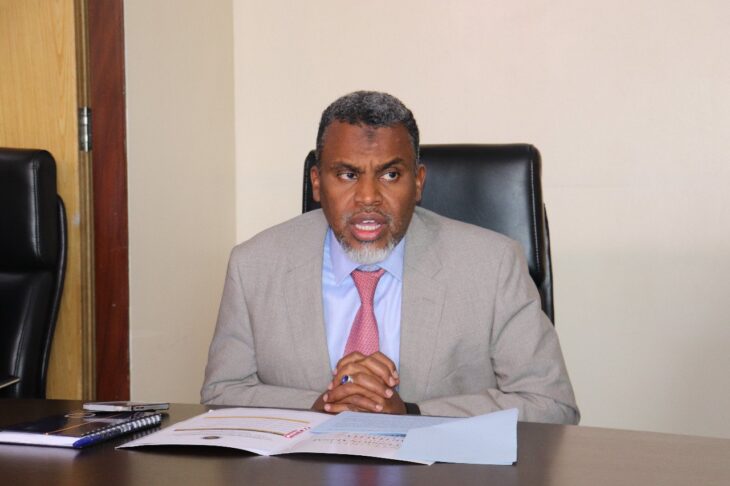Regional prosecutors are meeting in Uganda to identify gender-sensitive initiatives and policies within the criminal justice sector that are geared toward protecting women and children. The Director of Public Prosecutions (DPP) Noordin Haji has said that transnational organized crimes, apart from threatening socio-economic development, national security, and the rule of law, also disproportionately affected women and children, exploiting their vulnerability.
“As such, women and children are often forced by criminal entities into prostitution, forced labour, trafficking and other forms of abuse and violence; with lasting psychological and physiological impact. We must therefore continuously adopt policies and procedures that reflect our commitment to ensuring equitable access to justice for all,” Haji said.
He also called for harnessing domestic solutions to such crimes targeting the vulnerable. Kenya, for example, instituted a Sexual and Gender-Based Violence Division as well as the Children’s Division to efficiently and effectively deal with such cases, following the rising challenge of targeted violence and abuse against women and children.
“We have further established child-friendly interview rooms to avoid revictimization of children,” Haji said.
The DPP was speaking during the 10th annual general meeting and conference of the east African Association of Prosecutors in Kampala, Uganda.
This year’s conference themed “Transboundary Crime: Practical Approaches to Protecting Women and Children,” highlights the urgency and significance in addressing the disproportionate effects of these crimes on our most vulnerable members of society.
Haji said the regional prosecutors could strengthen collegiality, information-sharing, and collaboration among member countries through professional networks.
“Indeed, it is only when we convene to share experiences and best practices that we can appreciate the strengths within our respective legal systems and approaches to fighting transnational organised crime,” he said.
The DPP added that it was important to harmonise the laws and consider modalities to implement hybrid systems within the East African countries and ease cooperation and collaboration.
“Our various legal systems are as a result of our differing colonial legacies, which have left some countries with the common law system and others with the civil law system. This has made it difficult for us to fully utilise and benefit from regional cooperation and collaboration due to the barriers presented by these differing legal systems,” he said.
Haji, who is the East Africa Association of Prosecutors’ Secretary General said they intend to expand the membership to include prosecution authorities from Central and Southern Africa Countries which the aim of combating transnational organised crimes.
“Growing this Association of Prosecutors not only expands our avenues for cooperation and collaboration but also ensures that we can collectively protect the most vulnerable among us and bring those who commit these crimes to justice,” he said.
The Office of the Attorney General of Somalia, and the Ministry of Justice and Public Prosecutions of the Republic of Sudan have since expressed their interest to join the Association as members. The Africa Judges Dialogue Forum also seeks to join EAAP as observers.
The conference was attended by Nobert Mao, Minister for Justice and Constitutional Affairs of the Republic of Uganda, Justice Alfonse Chigamoy Owiny-Dollo, the Chief Justice of the Republic of Uganda, Lady Justice Jane Frances Abodo, DPP of Uganda, and Sylvester Anthony Mwakitalu, East Africa Association of Prosecutors President and the DPP Tanzania, among other officials.
Kenya has also signed cooperation deals with foreign prosecutors to enhance the prosecution of these crimes. The pacts will ensure the countries share information regarding complex crimes and make extraditing suspects easy.
Last week, Kenya signed a deal with Morocco’s Attorney General and President of Public Prosecutions Moulay El Hassan Daki in Nairobi.
“The MoU will strengthen networking and cooperation in combatting transnational organized crimes such as cyber crimes, corruption, money laundering, trafficking in drugs and persons, terrorism, and violent extremism,” Haji said on Tuesday last week.
The deals follow an international conference of prosecutors from 42 African countries hosted in January by DPP in Mombasa. The DPP said his office had sealed similar cooperation pacts with Uganda and Somalia among other countries and was at a high-level talk to ink one with Tanzania.
Want to send us a story? Contact Shahidi News Tel: +254115512797 (Mobile & WhatsApp)


